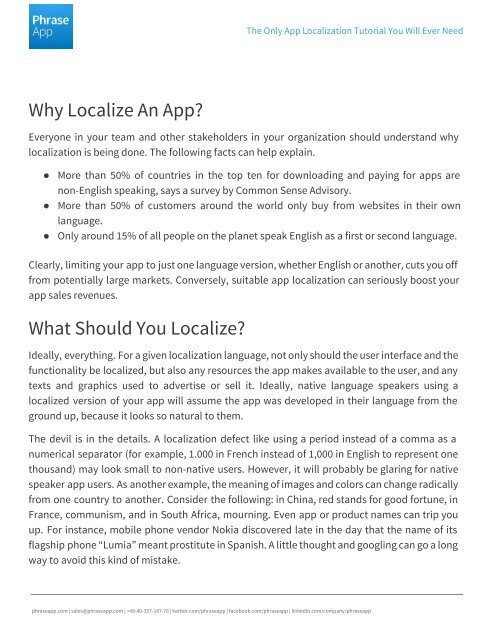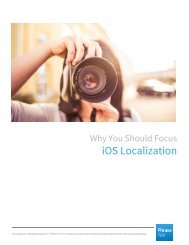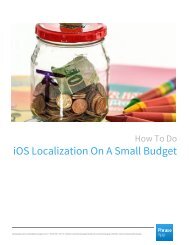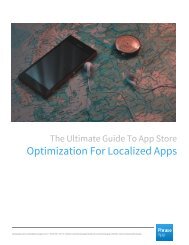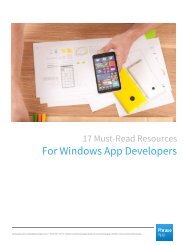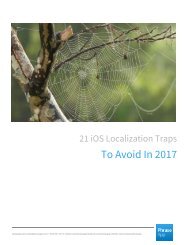The Only App Localization Tutorial You Will Ever Need
You also want an ePaper? Increase the reach of your titles
YUMPU automatically turns print PDFs into web optimized ePapers that Google loves.
<strong>The</strong> <strong>Only</strong> <strong>App</strong> <strong>Localization</strong> <strong>Tutorial</strong> <strong>You</strong> <strong>Will</strong> <strong>Ever</strong> <strong>Need</strong><br />
Why Localize An <strong>App</strong>?<br />
<strong>Ever</strong>yone in your team and other stakeholders in your organization should understand why<br />
localization is being done. <strong>The</strong> following facts can help explain.<br />
● More than 50% of countries in the top ten for downloading and paying for apps are<br />
non-English speaking, says a survey by Common Sense Advisory.<br />
● More than 50% of customers around the world only buy from websites in their own<br />
language.<br />
● <strong>Only</strong> around 15% of all people on the planet speak English as a first or second language.<br />
Clearly, limiting your app to just one language version, whether English or another, cuts you off<br />
from potentially large markets. Conversely, suitable app localization can seriously boost your<br />
app sales revenues.<br />
What Should <strong>You</strong> Localize?<br />
Ideally, everything. For a given localization language, not only should the user interface and the<br />
functionality be localized, but also any resources the app makes available to the user, and any<br />
texts and graphics used to advertise or sell it. Ideally, native language speakers using a<br />
localized version of your app will assume the app was developed in their language from the<br />
ground up, because it looks so natural to them.<br />
<strong>The</strong> devil is in the details. A localization defect like using a period instead of a comma as a<br />
numerical separator (for example, 1.000 in French instead of 1,000 in English to represent one<br />
thousand) may look small to non-native users. However, it will probably be glaring for native<br />
speaker app users. As another example, the meaning of images and colors can change radically<br />
from one country to another. Consider the following: in China, red stands for good fortune, in<br />
France, communism, and in South Africa, mourning. Even app or product names can trip you<br />
up. For instance, mobile phone vendor Nokia discovered late in the day that the name of its<br />
flagship phone “Lumia” meant prostitute in Spanish. A little thought and googling can go a long<br />
way to avoid this kind of mistake.<br />
phraseapp.com | sales@phraseapp.com | +49-40-357-187-76 | twitter.com/phraseapp | facebook.com/phraseapp | linkedin.com/company/phraseapp


